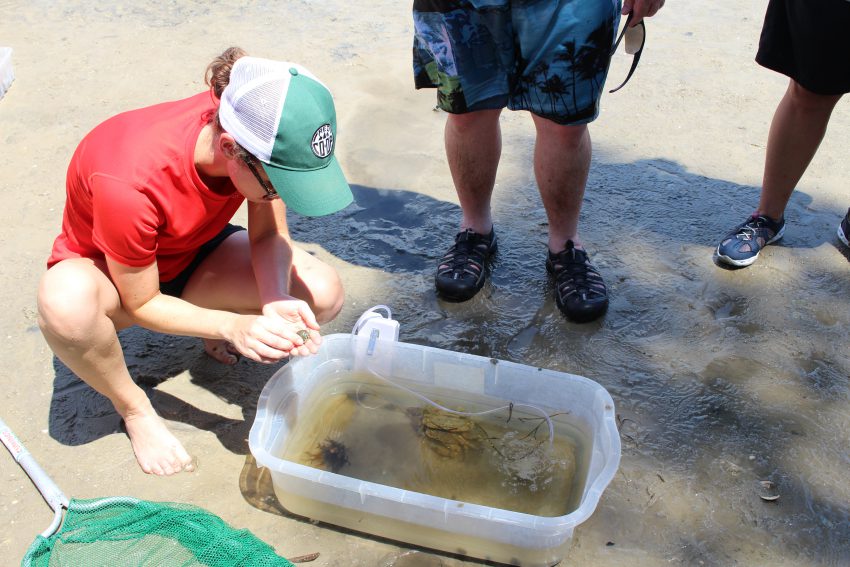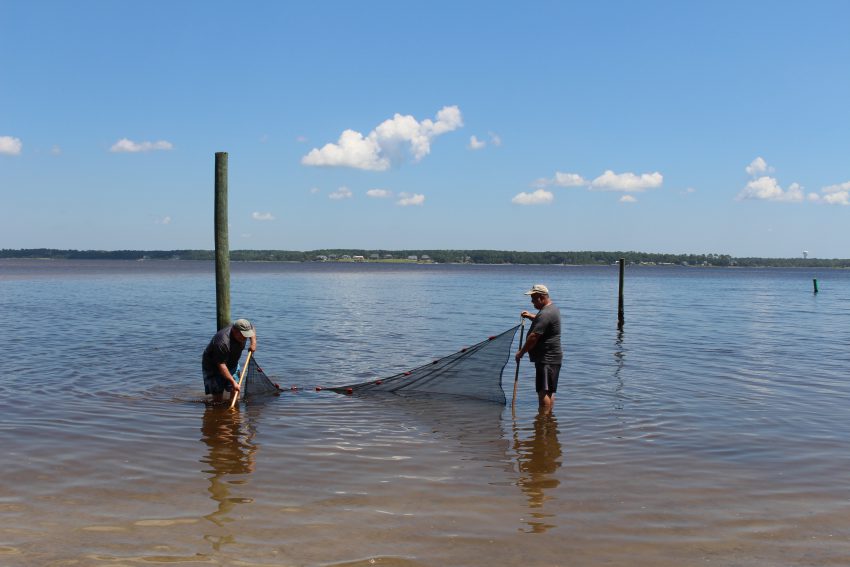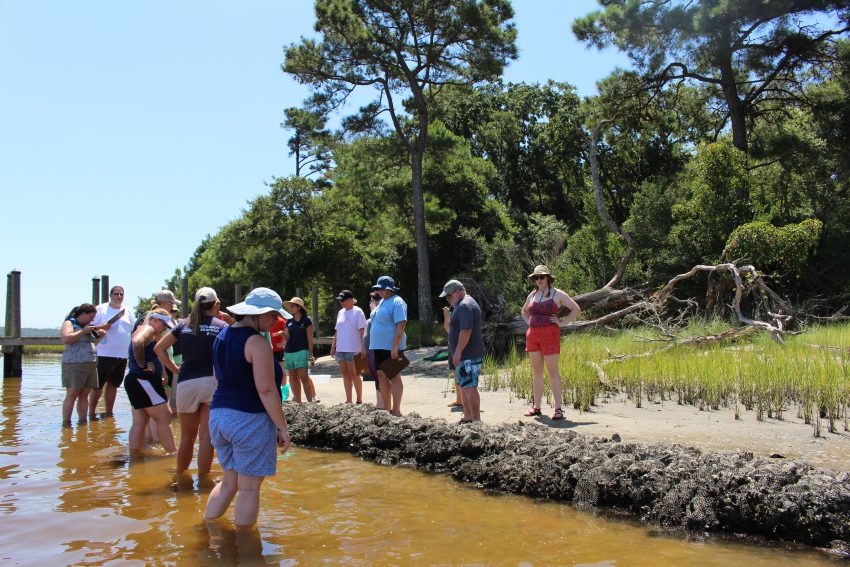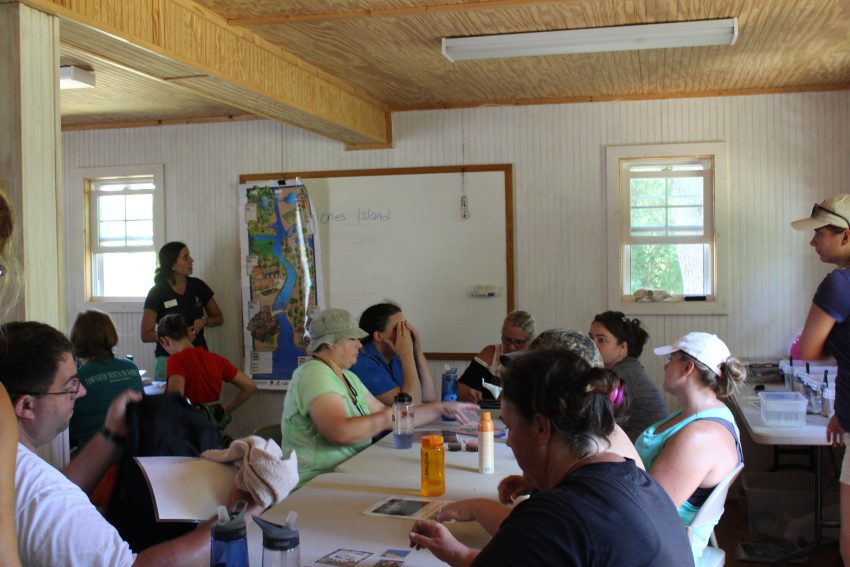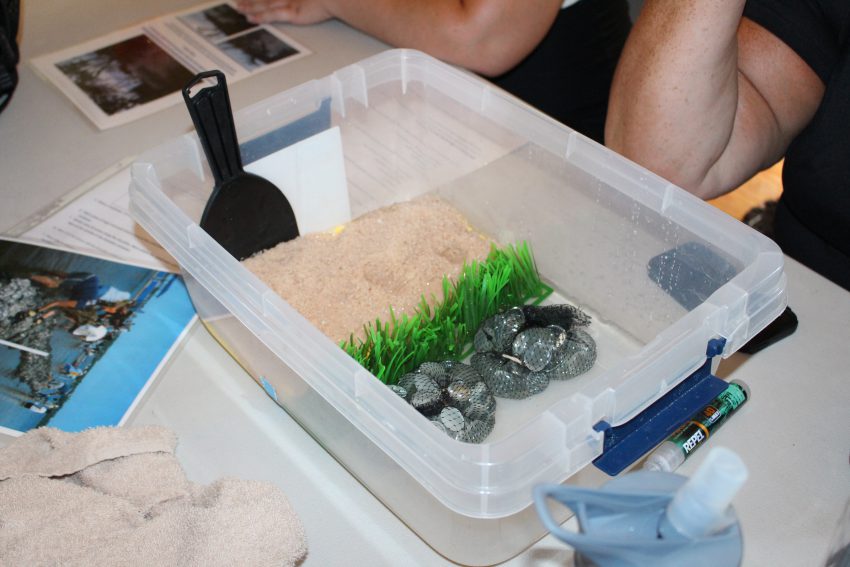Teachers from around the state visited Jones Island at Hammocks Beach State Park on Thursday, July 28, for a teacher workshop session led by Rachel Bisesi, coastal education coordinator for the North Carolina Coastal Federation.
The workshop was focused on helping teachers better understand how the hydrologic system on the coast. It was led by the UNC Institute for the Environment. It taught educators about how using science helps inform solutions for coastal issues. The institute reached out to Bisesi for a hands-on workshop that gave teachers lesson ideas to use their classrooms.
Low-impact development lesson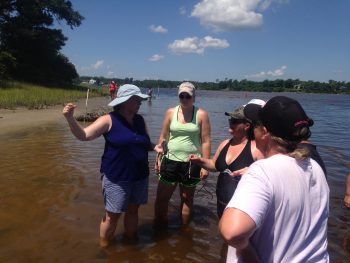
The group took a covered ferry boat from Hammocks Beach to Jones Island. Once there, they gathered in a classroom to learn about how stormwater runoff moves through a watershed and collects pollution. The teachers played a game where they are given a poster that shows a waterway with many types of land-uses along its path. The poster shows land-uses such as farm land, high-density and low-density developments.
The game started with 300 “units” of stormwater runoff, and the teachers had to get the “units” down to 150. This activity helps middle and high school students learn about low-impact development. It also teaches students about watersheds and the impact of runoff on a downstream body of water.
Bisesi also led a lesson about living shorelines using her shifting shorelines demonstration. This lesson uses different shoreline scenarios to show what shoreline works best in preventing erosion and curbing wave energy.
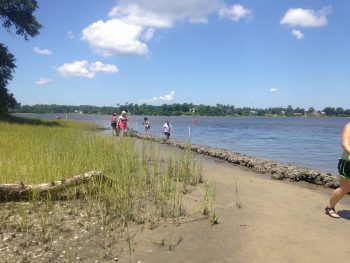 Studying the living shoreline
Studying the living shoreline
Bisesi led the group to the water and talked about how school groups are involved in shoreline monitoring. Then, the teachers learned about how the federation and school groups keep data on marsh grass and oyster reefs.
Bisesi said it was important to her to lead the teachers with interactive lessons rather than lecture them. She also gave them lesson plans and materials so that they could take the lessons on coastal health back to their classrooms. It was a good day, she said, despite the heat.
“This was a great opportunity to share our lesson plans with teachers and to brainstorm how we can better plan our education programming to fit their needs,” said Bisesi.
In addition to this workshop, the federation leads other programs along the coast that aim to “teach the teachers” about ways to focus lessons on coastal issues. Read more about them here and here.
Learn more about our education programs, contact one of our education coordinators, or call 252-393-8185 for more information about education opportunities in your region.
- Photo: Stacey Feken
- Photo: Stacey Feken
- Photo: Stacey Feken
- Photo: Stacey Feken
- Photo: Stacey Feken

